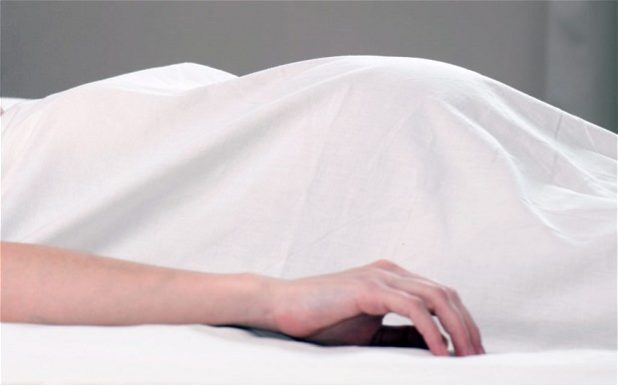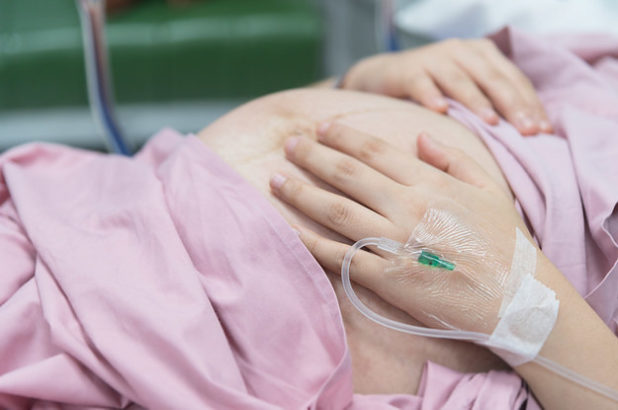Pomidor Quixote
Daily Stormer
January 13, 2019
We recently learned about a case where a front-hole in vegetative state got pregnant and gave birth to a healthy baby. NBC News has put out a piece taking a closer look into the phenomenon.
The disturbing case of an Arizona woman who gave birth despite being in a vegetative state for more than a decade is not the first of its kind, experts told NBC News.
The woman, 29, delivered in December while receiving long-term care at Hacienda HealthCare in Phoenix after a near-drowning incident. Authorities do not know who impregnated her and have opened a sexual assault investigation in search of her rapist.
The case echoes one from 1995, when a comatose 29-year-old woman was raped by a nurse’s aide at her nursing home near Rochester, New York. Staff discovered she was pregnant early on, a key difference between her and the Arizona woman.
Jeffrey Spike, an affiliate faculty member at the University of Virginia School of Medicine Center for Biomedical Ethics and Humanities, served as an ethics consultant for the hospital treating the New York woman and spoke with her parents about whether they wanted to terminate the pregnancy. They decided against it, and the woman gave birth to a premature but healthy boy in March 1996, who was raised by his maternal grandmother.
In patients in vegetative states, Spike said, “cognitively, all the human qualities are gone, but biologically, everything is pretty normal,” making it possible for pregnancy to happen.
…
In 2000, Feldman co-authored a paper on maternal brain injury which reviewed 11 cases of irreversible brain injury in pregnant women and found that 10 out of their 11 babies had survived. The cases included mothers who were brain-dead and in persistent vegetative states.
We’ve talked about artificial wombs and other workarounds because even though we need to reproduce, the prospect of putting up with the whores Jews have made out of our women has the power to make you think twice before you engage with any of these front-holes.
Why wait for science and technology to converge into artificial wombs if we can have the real deal without the ugly parts?
We can literally remove consciousness from women and have the perfect baby-making machines.
We’d have baby-making factories. Imagine what a great sight that would be. Women would be producing at least 15 babies each in their lifetime. It would be so, so cost-effective.
Robots would be taking care of the babies, and they’d let them close to their mother so they experience human contact, which would be a huge improvement over what we have now.
We can fix women TODAY. We just have to make the decision.
Sure, we first have to put infrastructure in place to keep them alive in their vegetative state, but those are just little details. The most important thing is knowing that it is possible and that it is possible right now.
In a vegetative state, patients can breathe and regulate their heartbeat on their own, but receive nutrition and hydration and show no signs of awareness.
“You will see eye-opening happen … but there isn’t any ability of the other parts of the brain in terms of understanding language, expressions of people’s faces, things of that nature,” said Dr. Gregory O’Shanick, medical director emeritus of the Brain Injury Association of America. “There’s also not any kind of purposeful behavior that they’re exhibiting, so you may see random movements, they may make a sound, and they may move once or twice, but it’s not reproducible or consistent.”
Doesn’t that sound like the perfect woman?
The brain injury that caused the vegetative state, O’Shanick added, would not likely contribute to any physical challenges in a pregnancy.
“Unless there was some other type of physical injury, a fracture or some other type of spinal cord injury, then everything else would presumably be intact,” he said. “The key issue is was she still having her period, and presumably the answer is yes.”
And a lack of prenatal care, while important, may also not have affected the baby, said Feldman, the maternal-fetal director. Potential problems with a patient in a vegetative state would mostly be centered around their lack of movement and would include fetal growth restriction, poor placental function, elevated blood pressure, or gestational diabetes, among other issues, she said.
“It’s hard to know for sure, but if there are no significant birth defects and if the baby was normally grown, there’s every expectation that the baby will thrive and be normal,” she said.
There you have it. No downsides.
This is a great possibility that should be explored further. It’s looking like the easiest and most down-to-earth solution to the woman problem.
So straightforward… what’s there not to like about it?
 Daily Stormer The Most Censored Publication in History
Daily Stormer The Most Censored Publication in History
















